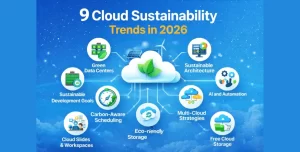
What is Blockchain and How Does It Work? A Beginner’s Guide
Table of Contents
Introduction
Welcome to WikiGlitz! If you’re new to the world of blockchain, you’re in the right place. Blockchain technology is making waves across various industries, and it’s essential to understand what it is and how it works.
In this beginner’s guide, we’ll break down the basics of blockchain technology, explain how it functions, and explore its significance in different sectors.
Let’s dive in and demystify blockchain together!
Key Takeaways
- Blockchain Fundamentals: Understand the basic principles and components that make blockchain a revolutionary technology.
- Diverse Applications: Explore how blockchain is transforming various industries, from finance to healthcare.
- Future Potential: Learn about the future trends and potential advancements in blockchain technology.
What is Blockchain?
Definition of Blockchain
Blockchain is a decentralised, distributed ledger technology that records transactions across multiple computers so that they cannot be changed retrospectively.
This ensures transparency and security for every transaction.
History and Origin of Blockchain
Satoshi Nakamoto, an unidentified individual or group, introduced the concept of blockchain in 2008.
It was first built to support the cryptocurrency Bitcoin. Over time, the underlying technology has found applications that go beyond digital currency.
How Does Blockchain Work?
Basic Principles of Blockchain Operation
At its core, blockchain consists of a series of blocks, each containing a list of transactions.
Each block contains a unique code called a hash, which is generated based on the block’s content. This hash ensures that the block cannot be altered without changing the entire chain.
The Process of Transaction Validation
The nodes validate the transactions using consensus mechanisms such as Proof of Work (PoW) or Proof of Stake (PoS).
Once validated, the block is added to the blockchain, making the transaction permanent and immutable.
The Role of Miners in Blockchain
Miners solve complex mathematical problems to generate the hash for each block.
Types of Blockchain
Public vs. Private Blockchains
Public Blockchains:
Public blockchains are open to everyone.
Bitcoin and Ethereum are prime examples. They allow anyone to participate as a node, validate transactions, and contribute to the network’s security.
Private Blockchains:
Private blockchains are not open to everyone. Only specific users can participate in the network, making them suitable for businesses that require privacy and control.
Example: Hyperledger
Consortium and Hybrid Blockchains
Consortium Blockchains:
In a consortium blockchain, many organizations share control.
It offers the benefits of decentralization while allowing for greater control and efficiency. This type is commonly used in industries like banking and supply chain management.
Hybrid Blockchains:
They provide the flexibility of a private blockchain with the transparency and security of a public one.
Businesses can control who can access specific data while keeping certain parts of the blockchain public.
Examples of Each Type
- Public: Bitcoin, Ethereum
- Private: Hyperledger, Corda
- Consortium: R3 (banking consortium), Energy Web Foundation
- Hybrid: Dragonchain, XinFin
Key Components of Blockchain
Blocks and Chains
Blocks are added in a linear, chronological order, forming a chain.
Cryptographic Hashing
A hash is a fixed-length string of characters generated by a hashing algorithm.
Even a slight change in input data results in a completely different hash, making it virtually impossible to alter information without detection.
Decentralization and Its Benefits
Decentralization is the most important principle.
This structure provides several benefits:
- Enhanced Security: No single point of failure reduces the risk of hacking.
- Immutability: Once added, data cannot be altered, ensuring integrity.
Applications of Blockchain in Various Industries
Finance and Banking
Blockchain technology has revolutionized the finance and banking sector by providing a secure and transparent way to conduct transactions.
It reduces the need for intermediaries, lowers transaction costs, and speeds up the settlement process. Examples include cross-border payments, smart contracts, and decentralized finance (DeFi) platforms.
Supply Chain Management
Blockchain enhances supply chain transparency by providing real-time tracking of goods from origin to destination.
It helps in verifying the authenticity of products, reducing fraud, and improving efficiency. Companies like IBM and Walmart are using blockchain to streamline their supply chains.
Healthcare and Medical Records
In healthcare, blockchain ensures the secure and efficient management of medical records. It allows patients and providers to access and share health information securely.
Blockchain can also be used for tracking pharmaceuticals and ensuring the authenticity of drugs.
Real Estate and Property Management
Blockchain simplifies real estate transactions by providing a transparent and secure platform for recording property ownership and transfer.
It reduces paperwork, speeds up transactions, and minimizes fraud. Blockchain can also facilitate tokenization, allowing fractional ownership of real estate assets.
Digital Identity Verification
Blockchain provides a secure and reliable way to manage digital identities. It enables individuals to control their personal information and share it securely with trusted parties.
This application is particularly useful in reducing identity theft and ensuring privacy.
Advantages of Blockchain Technology
Transparency and Security
Blockchain’s decentralized nature ensures that all transactions are transparent and traceable.
The use of cryptographic hashing adds an extra layer of security, making it extremely difficult for malicious actors to alter data.
Reduced Costs and Efficiency
By eliminating intermediaries, blockchain reduces transaction costs and speeds up processes.
This efficiency is beneficial in various sectors, including finance, where traditional transaction methods can be slow and expensive.
Immutability and Trust
This immutability builds trust among users as they can be confident that the information is accurate and tamper-proof.
Challenges and Limitations of Blockchain
Scalability Issues
Solutions such as sharding and off-chain transactions are being developed to address these challenges.
Regulatory Concerns
Blockchain operates in a relatively new and evolving regulatory environment.
Different countries have different regulations, and navigating these can be complex for blockchain companies.
Energy Consumption
The process of mining, especially in Proof of Work (PoW) blockchains, consumes a significant amount of energy.
Future of Blockchain Technology
Potential Advancements
Blockchain technology is continually evolving. Innovations such as smart contracts, decentralized applications (dApps), and improved consensus mechanisms are expanding the possibilities of blockchain.
Emerging Trends
Some emerging trends in blockchain include the integration of artificial intelligence (AI) with blockchain, the rise of decentralized finance (DeFi), and the increasing use of blockchain in supply chain management.
Predictions for the Next Decade
In the next decade, blockchain is expected to become more mainstream.
It will likely be integrated into more industries, enhancing transparency, security, and efficiency in various processes.
Conclusion
In conclusion, blockchain technology is a revolutionary concept with the potential to transform multiple industries.
From its basic principles to its diverse applications, blockchain offers numerous benefits, including enhanced security, transparency, and efficiency.
While it faces challenges such as scalability and regulatory concerns, its future looks promising with ongoing advancements and emerging trends.
Stay tuned with WikiGlitz for more insights and updates on blockchain and other groundbreaking technologies!
FAQs
What is a blockchain in simple terms?
Blockchain is a decentralized digital ledger that records transactions across multiple computers, ensuring that the record is secure and cannot be altered retroactively.
How secure is blockchain technology?
Blockchain technology is highly secure due to its decentralized nature and cryptographic hashing, making it extremely difficult for data to be tampered with.
Can blockchain be hacked?
While no system is completely immune to hacking, the decentralized and cryptographic nature of blockchain makes it highly resistant to attacks.
What industries benefit most from blockchain?
Industries such as finance, supply chain management, healthcare, real estate, and digital identity verification benefit significantly from blockchain technology.
What is the future of blockchain technology?
The future of blockchain technology looks promising with potential advancements, emerging trends like DeFi, and broader integration into various industries to enhance transparency, security, and efficiency.
Want to keep up with our blog?
Our most valuable tips right inside your inbox, once per month.
Error: Contact form not found.
WikiGlitz Team
Welcome to WikiGlitz, your ultimate destination for tech insights and innovation. Our expert team is dedicated to delivering free resources and professional advice on various technology topics, including Artificial Intelligence, Cyber Security, Cloud Computing, and more. We strive to empower our readers with up-to-date information and practical guidance, ensuring you stay ahead in the rapidly evolving tech landscape. At WikiGlitz, we are passionate about making complex technology accessible to everyone. Our team of seasoned experts curates content that is both informative and engaging, helping you understand and leverage the latest tech trends. Whether you're a tech enthusiast or a professional, WikiGlitz is your go-to source for reliable, expert-driven content. Join us on this journey to explore and embrace the future of technology.





